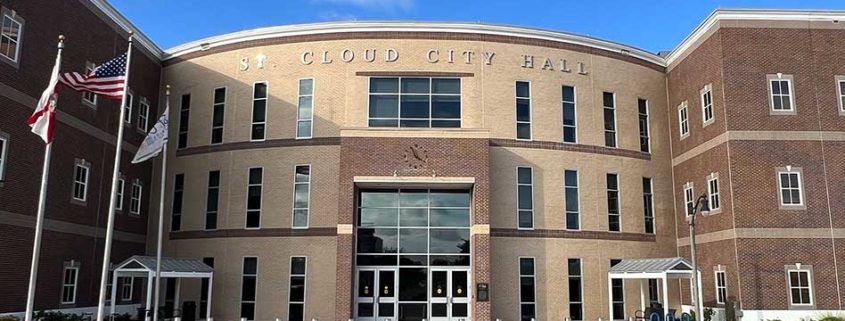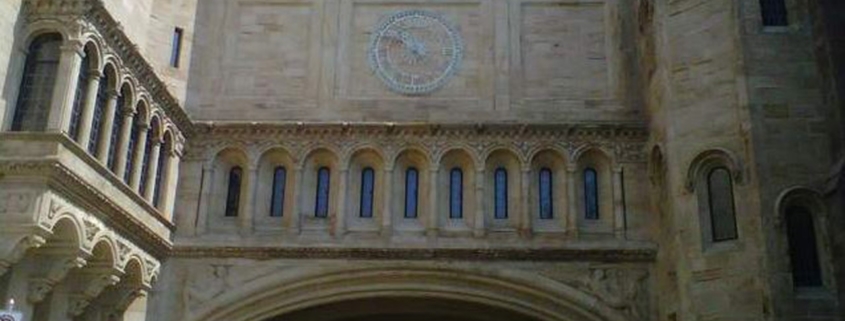Last month, we wrote about the big publishers suing the Internet Archive over its Controlled Digital Lending (CDL) program, as well as its National Emergency Library (NEL). As we’ve explained over and over again, the Internet Archive is doing exactly what libraries have always done: lending books. The CDL program was structured to mimic exactly how a traditional library works, with a 1-to-1 relationship between physical books owned by the library and digital copies that can be lent out.
While some struggled with the concept of the NEL since it was basically just the CDL, but without the 1-to-1 relationship (and thus, without wait lists), it seemed reasonably defensible: nearly all public libraries at the time had shut down entirely due to the COVID-19 pandemic, and the NEL was helping people who otherwise would never have had access to the books that were sitting inside libraries, collecting dust on the inaccessible shelves. Indeed, plenty of teachers and schools thanked the Internet Archive for making it possible for students to still read books that were stuck inside locked up classrooms. But, again, this lawsuit wasn’t just about the NEL at all, but about the whole CDL program. The publishers have been whining about the CDL for a while, but hadn’t sued until now.
Of course, the reality is that the big publishers see digital ebooks as an opportunity to craft a new business model. With traditional books, libraries buy the books, just like anyone else, and then lend them out. But thanks to a strained interpretation of copyright law, when it came to ebooks, the publishers jacked up the price for libraries to insane levels and kept putting more and more conditions on them. For example, Macmillan, for a while, was charging $ 60 per book — with a limit of 52 lends or two years of lending, whichever came first. And then you’d have to renew.
Basically, publishers were abusing copyright law to try to jam down an awful and awfully expensive model on libraries — exposing how much publishers really hate libraries, while pretending otherwise.
Anyway, the Internet Archive has filed its response to the lawsuit, which does the typical thing of effectively denying all of the claims in the lawsuit (though I will admit that I chuckled to see them even “deny” the claim that the Archive’s headquarters are in an “exclusive” part of San Francisco (FWIW, I’d probably describe the area more as “not easily accessible by public transit,” but that doesn’t quite make it exclusive — or at least not any more exclusive than most of the rest of SF)).
The Internet Archive admits that its headquarters are located in San Francisco, but denies that the corner of Funston and Clement Streets is an “exclusive area.”
The key part, of course, will be the defenses, and as expected the Internet Archive throws everything in starting with fair use, failure to state a claim, first sale, DMCA safe harbor, and statute of limitations and laches. The key ones are going to be fair use and the first sale issue. And the response lays out the basics of how this defense is going to be argued:
The Internet Archive does what libraries have always done: buy, collect, preserve, and share our common culture. In furtherance of that mission, the Internet Archive has received grant funding from the National Endowment for the Humanities, the National Science Foundation, and the federal government’s Institute of Museum and Library Services, among many other sources. Many libraries and archives, including the Library of Congress, Boston Public Library, University of Illinois at Urbana-Champaign, and smaller community libraries like the Allen County Public Library trust the Internet Archive to digitize books and other materials in their collections in order to preserve physical texts and to facilitate public access. The Internet Archive is part of a network of libraries around the world—each of which is using digital technologies to meet the many challenges of serving patrons with diverse needs and differing abilities and to ensure that the growing storehouse of human creativity is not lost because no one has the capacity to preserve it.
Like Plaintiffs, the Internet Archive believes that “[b]ooks are a cornerstone of our culture and system of democratic self-government” and “play a critical role in education.” Accordingly, democratizing access to information, and facilitating access to books in particular, has been a core part of the Internet Archive’s mission for decades. But, for many people, distance, time, cost, or disability pose daunting and sometimes insurmountable barriers to accessing physical books. Digitizing and offering books online for borrowing unlocks them for communities with limited or no access, creating a lifeline to trusted information. Readers in the Internet age need a comprehensive library that meets them where they are—an online space that welcomes everyone to use its resources, while respecting readers’ privacy and dignity.
[….]
The Internet Archive has made careful efforts to ensure its uses are lawful. The Internet Archive’s CDL program is sheltered by the fair use doctrine, buttressed by traditional library protections. Specifically, the project serves the public interest in preservation, access and research—all classic fair use purposes. Every book in the collection has already been published and most are out of print. Patrons can borrow and read entire volumes, to be sure, but that is what it means to check a book out from a library. As for its effect on the market for the works in question, the books have already been bought and paid for by the libraries that own them. The public derives tremendous benefit from the program, and rights holders will gain nothing if the public is deprived of this resource.
During the early days of the COVID-19 crisis, in response to urgent pleas from teachers and librarians whose students and patrons had been ordered to stay at home, the Internet Archive decided to temporarily permit lending that could have exceeded the one-to-one owned-to-loaned ratio. With millions of print books locked away, digital lending was the only practical way to get books to those who needed them. The Internet Archive called this program the “National Emergency Library” and planned to discontinue it once the need had passed. Twelve weeks later, other options had emerged to fill the gap, and the Internet Archive was able to return to the traditional CDL approach.
Contrary to the publishers’ accusations, the Internet Archive and the hundreds of libraries and archives that support it are not pirates or thieves. They are librarians, striving to serve their patrons online just as they have done for centuries in the brick-and-mortar world. Copyright law does not stand in the way of libraries’ right to lend, and patrons’ right to borrow, the books that libraries own.
In a blog post about this, Internet Archive Founder Brewster Kahle notes that beyond trying to kill the CDL, the lawsuit also looks to force the Archive to destroy the digital books it’s scanned for so many libraries, and to preserve that history.
These publishers call for the destruction of the 1.5 million digital books that Internet Archive makes available to our patrons. This form of digital book burning is unprecedented and unfairly disadvantages people with print disabilities. For the blind, ebooks are a lifeline, yet less than one in ten exists in accessible formats. Since 2010, Internet Archive has made our lending library available to the blind and print disabled community, in addition to sighted users. If the publishers are successful with their lawsuit, more than a million of those books would be deleted from the Internet’s digital shelves forever.
I call on the executives at Hachette, HarperCollins, Wiley, and Penguin Random House to come together with us to help solve the pressing challenges to access to knowledge during this pandemic. Please drop this needless lawsuit.
It really is quite incredible that these publishers are looking to effectively do a digital book burning in the midst of a pandemic.
Techdirt.


